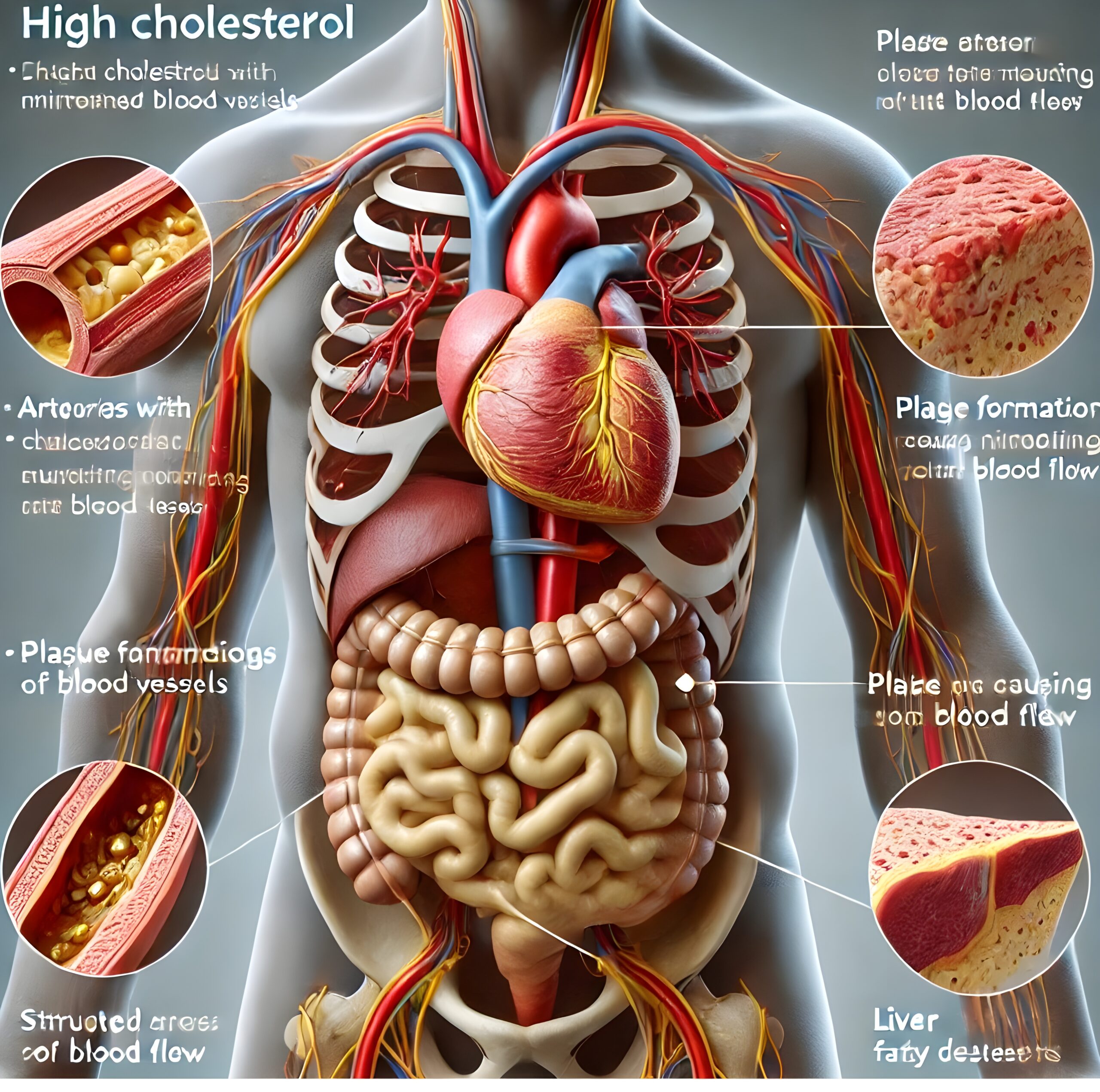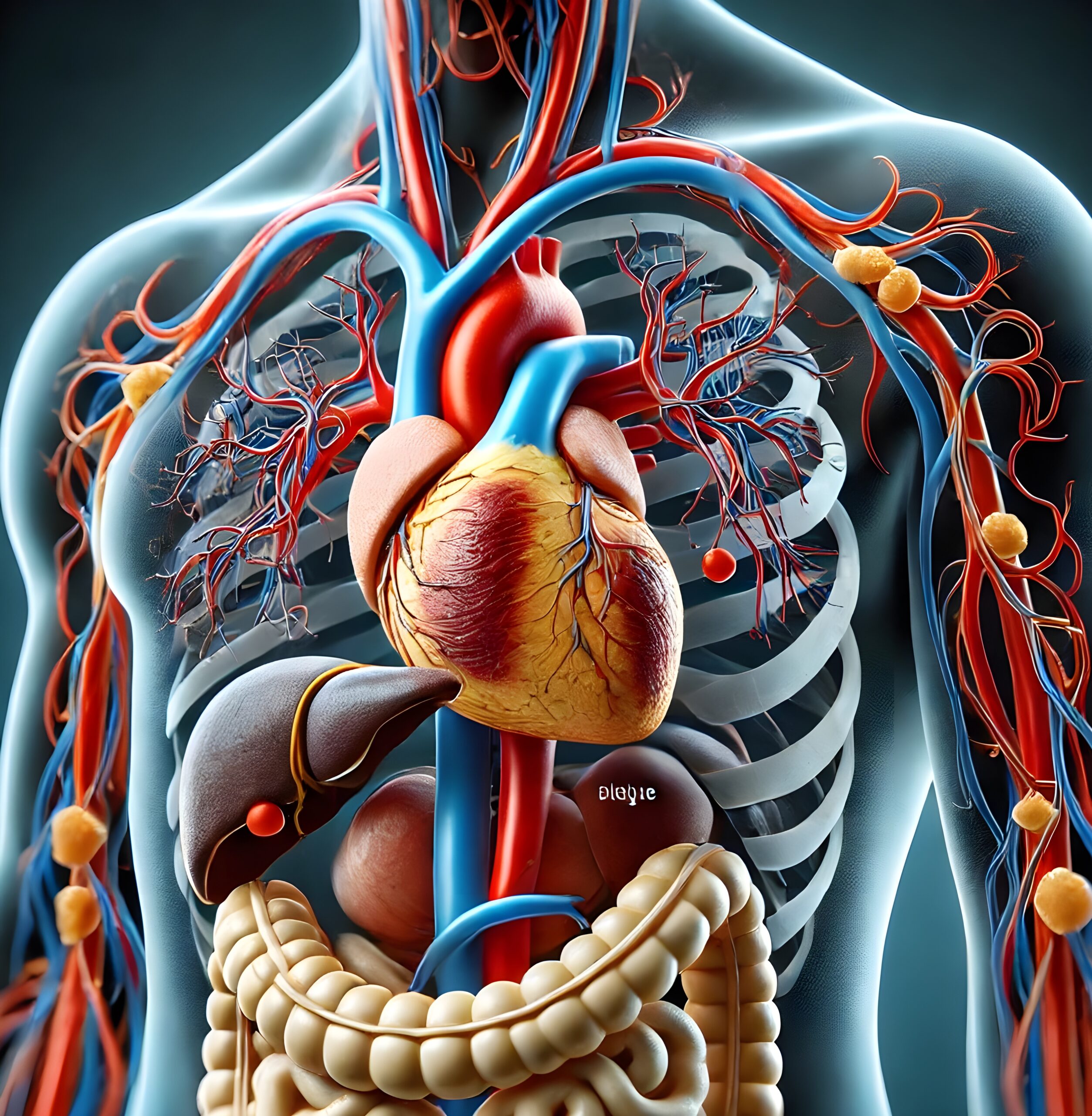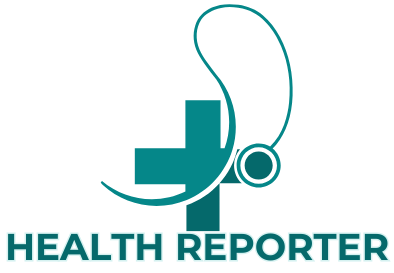
Table of Contents
High cholesterol is a widespread health problem that affects millions across the globe. Although it may not display obvious signs, uncontrolled high cholesterol may cause serious health problems, such as stroke and heart disease. This guide explains the causes of high cholesterol its causes, how it impacts the body, and how you can control or avoid it.
What Is High Cholesterol?
Cholesterol can be described as a waxy fat-like substance in blood. The body requires cholesterol to create healthy cells, but excessive cholesterol can cause health problems. High cholesterol, medically known as hypercholesterolemia, occurs when you have elevated cholesterol levels in your blood, mainly low-density lipoprotein (LDL) cholesterol, often called “bad cholesterol.”
Types of Cholesterol
Cholesterol gets transported through the bloodstream via lipoproteins. The two major types are:
- LDL: Low-density lipoprotein (LDL): Known as “bad cholesterol,” LDL may build up within the arteries’ walls and cause them to shrink and harden, a condition known as atherosclerosis.
- The High-Density Lipoprotein (HDL): Often called “good cholesterol,” HDL helps to eliminate LDL in the bloodstream, decreasing the risk of developing heart disease.
Other lipids, including triglycerides, play an essential part in the overall health of cholesterol. The presence of elevated triglycerides, in conjunction with the presence of high LDL as well as low HDL, may increase your risk of suffering from cardiovascular diseases.
What Causes High Cholesterol?
Many factors contribute to the rise in cholesterol levels, such as:
- A poor diet: Consuming foods high in trans fats (like red meat, processed food, and fried food) can increase LDL cholesterol levels.
- Inactivity: Being inactive can reduce HDL cholesterol and increase LDL cholesterol.
- Genetics: Family hypercholesterolemia is an inherited condition that can result in very high cholesterol levels, even among those who have a healthy diet.
- Medical conditions: Conditions such as obesity, diabetes and hypothyroidism may cause an increase in cholesterol levels.
- Smoking: Smoking reduces HDL cholesterol levels and weakens artery walls, which makes it easier for LDL cholesterol to build up.
Effects of High Cholesterol on the Body
High cholesterol isn’t usually a cause for symptoms, so it’s often called a “silent” condition. However, as time passes, it can cause grave complications, which include:
- Atherosclerosis The artery walls are clogged with plaque, which narrows them and decreases blood flow.
- Heart Disease: The arteries that are blocked cause the heart to perform harder and increase the chance of developing angina, heart attacks, angina, and other cardiac issues.
- Stroke: A decrease in blood flow into the brain due to narrowed or blocked arteries could cause stroke.
- Peripheral Artery Disorder (PAD): Plaque accumulation in the legs’ arteries can cause problems walking and pain.

How to Diagnose High Cholesterol
The diagnosis of high cholesterol is made through an examination of the blood called the Lipid profile, which measures:
- Total cholesterol
- LDL cholesterol
- HDL cholesterol
- Triglycerides
It is recommended that adults check their cholesterol levels at least once every 4-6 years or more often in the case of risk factors such as obesity, family background of high cholesterol or any other health issues.
Management and Prevention of High Cholesterol
1. Dietary Changes
- Increase your intake of fiber. Foods high in soluble fiber, like oats, beans, and Nutritious fruit, help reduce LDL cholesterol.
- Limit trans and saturated fats. Limit consumption of butter, fatty meats, and processed foods.
- Incorporate healthy fats: Use olive oil and eat fatty fish such as mackerel and salmon, which are high in omega-3 fats.
2. Regular Exercise
Physical activity improves HDL cholesterol levels while also helping keep an ideal weight. Ensure you do at least 150 minutes of aerobic exercise each week, like cycling, walking or swimming.
3. Quit Smoking
Quitting Smoking can improve HDL cholesterol levels and benefit the overall health of your heart.
4. Medications
In certain situations, lifestyle changes might not be enough to reduce cholesterol levels. The most commonly prescribed drugs include:
- Statins Lower LDL cholesterol in your liver.
- Ezetimibe: Lowers cholesterol absorption from the intestines.
- PCSK9 inhibitors: Aid in removing LDL cholesterol from the bloodstream.
5. Weight Management
Even a tiny percentage of your weight (5-10 percent in body mass) can significantly impact lowering blood cholesterol and improving health overall.

FAQs About High Cholesterol
1. Can the effects of high cholesterol be reversed?
Yes, with a mixture of lifestyle modifications, for example, eating a heart-healthy food plan, working out regularly, and sometimes using medications.
2. Are there natural cures for high cholesterol?
Natural treatments, such as garlic, more fiber, and green tea, can reduce cholesterol. However, they should be used in conjunction with and not substitute for physician treatment recommendations.
3. Does high cholesterol cause symptoms?
The presence of cholesterol in itself isn’t the cause of symptoms. However, complications such as stroke or heart disease could be a sign of danger.
4. Does high cholesterol just become an issue for people over the age of?
No. Although age can increase the risk of developing high cholesterol, it is a risk for everyone, not just young adults and children.
5. What is the difference between LDL and HDL?
LDL (bad cholesterol) causes blockage of the arteries, and HDL (good cholesterol) assists in removing LDL from the bloodstream.
6. What is the best way to test your cholesterol level?
The majority of adults should have their cholesterol levels checked every 4-6 years or more often if they are at risk for heart disease, such as obesity or an ancestor with a background of heart disease.
Conclusion
High cholesterol is a manageable condition, but it does require concentration and dedication. By combining an appropriate diet, regular exercise, and medical attention, it is possible to lower cholesterol levels in your body and lower your risk of suffering from cardiovascular disease. Taking proactive steps now can result in a healthier and longer life.
